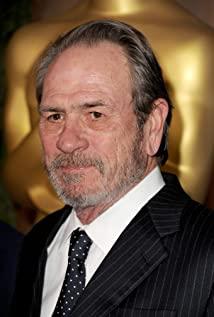The point of disagreement between Pete and his father in this movie can actually return to their reaction to the nihility of life.
After confronting his father, Pete understood the reason why his father alienated human beings: he traveled in galaxies and witnessed the emptiness under the surface of countless planets. His father who still did not find extraterrestrial life lost his purpose and motivation, so he chose to stay in space and stay in space. Setting up the never-ending and futile exploration as my goal comes from deceiving me to spend a life of nothingness (his contempt for things on earth has shown that he is not interested in life without a purpose).
Pete was also in this state of nothingness. In the early days of the film, when he chose to close himself and choose not to restore his wife, he was also embarking on his father's old path. But after being revealed of his father's misdeeds to the crew, Pete began to reject his father and the way he acted: He chose to confront his father personally and destroy his father's space station.
The film bought a problem for the audience in the mid-term: First, by chance, Peter did the same wrong thing as his father did-directly/indirectly killed all his crew; secondly, he returned on the journey. The state of loneliness, and loneliness is a state similar to his father's choice; therefore, when Pete confronts his father again at this time, will he fall to his father or be able to resist his father firmly (or even save his father)? From then on, the movie seems to be heading towards a climax of the conflict between Pete and his father's values and Pete's inner struggle, but the movie takes this matter past with a few simple flashback nightmares and memories. Since then, the confrontation between him and his father was too short, and he acquiesced (by letting go) that his father’s choice of lifestyle was completed in a short period of time, far from reaching the construction of Pete’s inner struggle in the early days of the movie.
The movie ending is unsatisfactory. The seeds were planted early in the movie, because the audience was never given enough father's influence on Pete. The audience can only extract new information about the "father's influence on Pete" from Pete's confession in the movie from time to time. This way of constructing the image of the father makes the father a tool (his image when he needs his image). There will be one more side), so the audience never knows what father means to Pete. This makes the ending Pete, whether he inherits/surpasses his father, does not repeat the mistakes, or saves his father, seems to be flawed-because early Pete did not show which ending is more inclined, so no matter which ending, the audience can question why only Could it be this ending and not the others? This movie also became unsatisfactory here.
The film deliberately placed the sun and Pete’s father at both ends of the solar system. One end symbolizes physical warmth and light, the earth bathed in the sun and the human bond that represents spiritual warmth on it, and the other symbolizes With the emptiness and darkness, and the isolation that lasted for decades; using this contrast and Pete's choice to reflect the different responses of Pete and his father to the void of life.
At the end of the film, Pete returns to human society, "to live, to love", which is another response he chooses to the nihility of life. He didn't alienate it because he knew the trivial nature of life. He finally chose to create a value that he can enjoy from it-the bond and love with others. This must be the director's more inclined way of dealing with life. .
PS: There are a lot of wasteland aesthetics in the film (especially the section on Mars, which I personally think is the most exciting section in the whole film), which really appeals to me! The director's portrayal of loneliness is actually very general, because these loneliness are often subjectively created by men, and it is too deliberate to always place him in the "state of a person". Finally, there are too many musical parts in the movie, which also counteracts the audience's perception of the void and closed state in space. Now, why do movies always want to use music to forcibly express emotions to infect the audience?
In the end, there are three astronauts (especially the captain) in the movie who want to replace the male lead to perform tasks, but how can their mental states pass evaluation? It doesn't make sense.
View more about Ad Astra reviews











